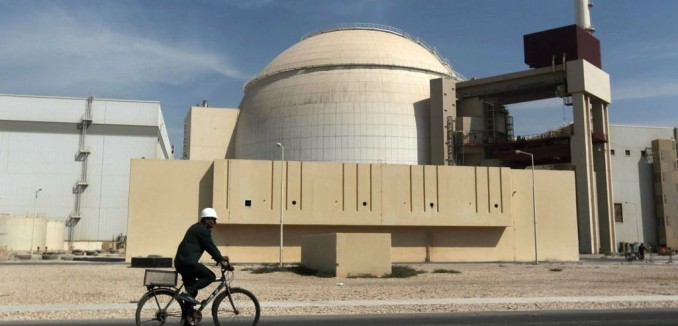Highly radioactive material was stolen from Iran’s Bushehr nuclear power plant, including a supply of iridium-192, an unstable isotope that can be used to manufacture dirty bombs, the London-based Arabic newspaper Asharq al-Awsat reported on Friday.
A dirty bomb combines radioactive material with conventional explosives in order to contaminate the area of detonation.
The International Atomic Energy Agency, the United Nations’ nuclear watchdog, warned Arab countries on November 18 that the iridium-192 went missing earlier this month, senior Gulf sources told the paper. The IAEA was originally tipped off by Iran’s national atomic energy organization.
The material was stolen while it was being transported, and the vehicle was later found abandoned with its contents missing, Asharq reported. The alleged thieves remain unidentified.
Iridium-192 has been classified as a category-2 radioactive substance by the IAEA, meaning that it can permanently injure or kill an exposed human within hours of contact.
Iran reached a nuclear agreement with world powers in July 2015, which requires it to place limits on its nuclear activities in return for the easing of international sanctions. The IAEA said earlier this month that Iran had been repeatedly overstepping a limit on its stock of “heavy water,” nuclear runoff that can be used to make weapons.
While a dirty bomb has never been deployed, there has been significant public concern in recent years over the potential for nuclear terrorism. In 2013, then-Israeli Defense Minister Moshe Ya’alon warned that Iran was interested in advancing terrorist activity, including the use of dirty bombs, against Western targets.
“If Iran goes confrontational and goes nuclear, it has the capability to enrich uranium to above 90 percent within two or three months. Even if it does not build a standard nuclear bomb, within less than six months it will be in possession of at least one primitive nuclear device: a dirty bomb,” Ya’alon said.
“There is a danger of the use of nuclear weapons by means of proxies,” he added. “A terrorist organization could smuggle a dirty bomb into the port of New York or the port of London or the port of Haifa.”
Israel carried out a series of tests in 2014 to measure the damage it might sustain from a dirty bomb detonation. “The research concluded that high-level radiation was measured at the center of the explosions, with a low level of dispersal of radiation by particles carried by the wind,” Haaretz reported. “Sources at the reactor said this doesn’t pose a substantial danger beyond the psychological effect.”
[Photo: Mehr News Agency]




